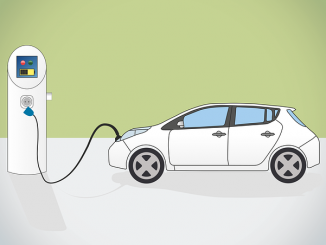
Every year since 2007, Shell holds its annual Shell Eco-marathon event which brings together students from different universities to outdo each other at designing and developing the most energy-efficient vehicles by using various types of fuel. A total of three Shell Eco-marathon events are held annually in the U.S., Asia and Europe.
At the 2017 Shell Eco-marathon Americas recently held in Detroit, Quebec’s Université Laval bested 114 rival teams from Brazil, Canada, Colombia, Guatemala, Mexico, Peru, Puerto Rico and the U.S., and won first place in the Prototype category (for the second consecutive year and the fourth time overall) with their ‘ultra-energy-efficient gasoline powered prototype vehicle’ which could run for 2,713 miles per gallon (mpg) of gas. Second and third place went to Utah’s Brigham Young University and Indiana’s Mater Dei High School.
As impressive as the Université Laval’s winning prototype is, however, it failed in the sense that it still was not able to surpass the capability of 2015’s winner — University of Toronto’s car that could run up to 3,421 mpg. It did manage to surpass its own record, though. Its 2016 winning prototype could only run a total of 2,585 mpg, which is 128 miles lower than this year’s record.
According to Business Insider, Laval’s prototype was successful because it was ‘lightweight, aerodynamic, and powerful for its size.’ It only had two horsepower, and much of it was used to bring the car up to speed, before coasting the rest of the way with the engine turned off. EconoTimes, on the other hand, commented that the car was able to achieve such fuel efficiency because of its ‘special shape’ and its engine technology that was ‘highly specialized’.
Running 2,713 miles using just one gallon can significantly reduce global fuel consumption. Unfortunately, that feat is so far achievable using only a prototype car. In terms of Shell’s competition, that means the car isn’t really something you can drive on everyday roads. If that feat was achieved in the UrbanConcept category — which had the specific requirement that a car must actually be ‘roadworthy’ — there’s a better likelihood that the design can be refined and improved to build a truly fuel-efficient car. And that can really be something to look forward to.
Still, with the global warming crisis we are facing, we shouldn’t just be aiming for reduced fossil fuel consumption. Ultimately, we’d have to aim for complete elimination of fossil fuel use.
Transportation-wise, the solution is electric vehicles. And for the sake of our beleaguered planet, we hope that the tech and automobile industries will be able to get their act together soon rather than later so they can accomplish what’s necessary for the EV industry to really take off.




Leave a Reply